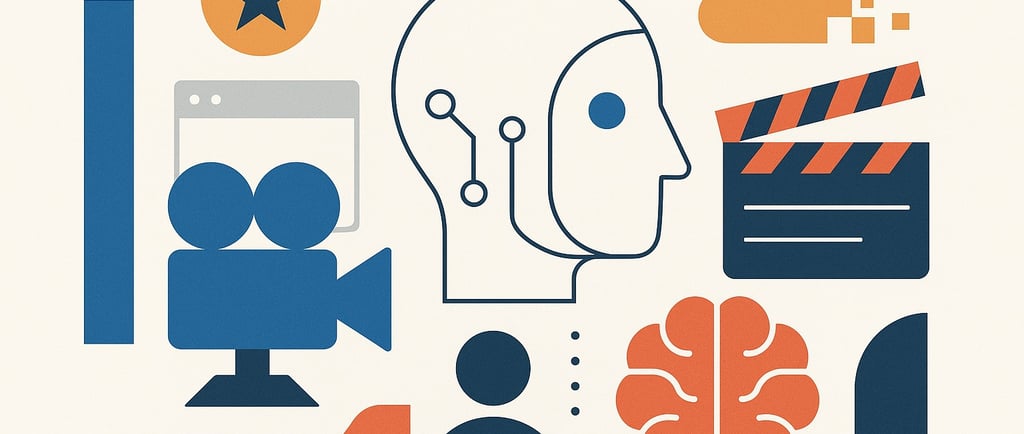AI's Role in Hollywood: A New Era or a Threat?
As AI technology makes inroads into Hollywood, the industry is grappling with its implications for creativity and copyright. While some see AI as a tool for innovation, others fear job displacement and exploitation. The ongoing conversation emphasizes the need for artists' rights and involvement in shaping AI's role in filmmaking.
USAGEFUTUREWORKPOLICYTOOLS
The AI Maker
9/15/20252 min read


Inside a historic soundstage once frequented by silent film legends, Hollywood's elite gathered to explore an intriguing topic: AI-generated video. As actors and filmmakers mingled over cocktails, the conversation centered on whether AI represents a groundbreaking opportunity or a looming threat to the film industry.
Just two years ago, Hollywood faced significant turmoil as writers and actors protested against AI's encroachment into their creative space. Now, the technology is making its presence felt in films and TV shows, with even Oscar-nominated films employing AI to tweak performances. The question remains: how will this technology reshape the future of cinema?
Bryn Mooser, co-founder of Moonvalley, hosted the gathering and expressed optimism about AI's potential. He emphasized the importance of involving artists in the conversation, stating, "Artists should be at the table." His company aims to create AI tools that respect creators' rights by compensating them for their work, a crucial point in a landscape where many feel their contributions are exploited.
AI has long been portrayed as a villain in Hollywood narratives, but the real-world implications are more complex. While AI can generate scripts and even alter actors' voices, many worry about job security. Mooser's view is that AI should assist rather than replace artists, allowing them to explore new creative avenues.
As the technology gains traction, discussions about copyright and intellectual property are heating up. Major companies like OpenAI and Google are facing lawsuits from writers and actors alleging unauthorized use of their work to train AI models. The tension between tech innovation and creative rights is palpable, and the stakes are high.
The recent AI film festival hosted by OpenAI and investments from filmmakers like the Russo brothers illustrate a growing interest in AI tools. However, the impact of these developments on the industry remains uncertain. Generative AI promises to enhance creativity, but it also raises concerns about losing the human touch that defines storytelling.
At the Moonvalley event, attendees were eager to learn more, but many hesitated to speak on record. The weather may have been dreary, but the discussions were anything but. As Mooser and his co-founder, Naeem Talukdar, highlighted, AI could democratize filmmaking, enabling aspiring creators to produce high-quality content without the backing of major studios.
Yet, the balance must be struck. Talukdar aptly noted, "This technology is utterly meaningless without the artist at the centre of it." The ongoing debate about AI's role in Hollywood is a reflection of broader societal questions about technology, creativity, and the future of work.
As the industry grapples with these issues, the call for fair use and protecting creators' rights will continue to resonate. The future of cinema may hinge on how well it navigates the intersection of technology and artistry.
Your Data, Your Insights
Unlock the power of your data effortlessly. Update it continuously. Automatically.
Answers
Sign up NOW
info at aimaker.com
© 2024. All rights reserved. Terms and Conditions | Privacy Policy
